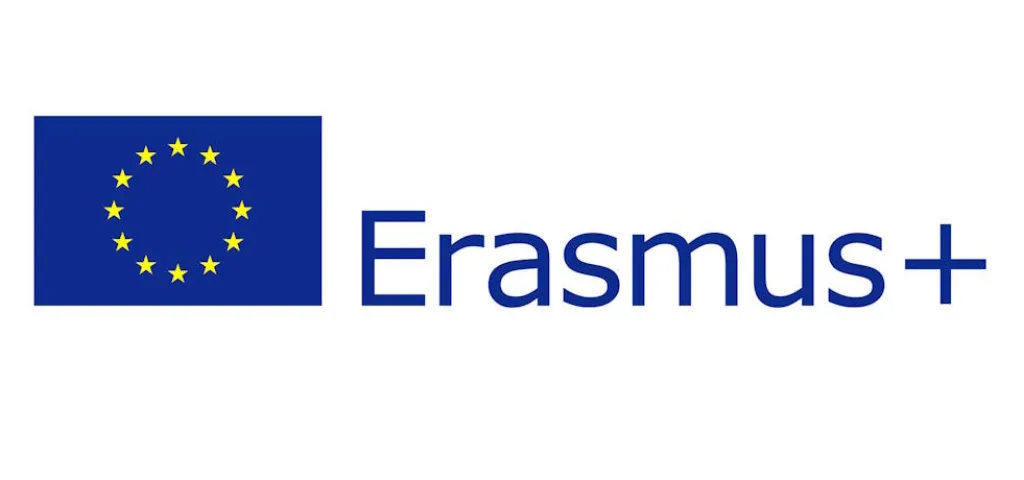
Erasmus+ is the EU's programme to support education, training, youth and sport in Europe.
The 2021-2027 programme places a strong focus on social inclusion, the green and digital transitions, and promoting young people’s participation in democratic life.
It supports priorities and activities set out in the European Education Area, Digital Education Action Plan and the European Skills Agenda. The programme also supports the European Pillar of Social Rights, implements the EU Youth Strategy 2019-2027 and develops the European dimension in sport.
Objectives of the Erasmus 2021-2027 Programme
Inclusion and Diversity
In order to provide access to students and staff, in line with the principles of the Erasmus Charter (ECHE), higher education institutions should ensure equal and equitable access and opportunities for current and prospective participants from all backgrounds. This requires the inclusion of people with fewer opportunities (for a detailed definition of people with fewer opportunities please see the Guide)
Environmental sustainability and environmentally friendly practices
According to the principles of the Erasmus Charter (ECHE), Higher Education Institutions should promote environmentally friendly practices in all activities related to the Programme, (use of sustainable means of transport for mobility, taking measures when organising events in a more environmentally friendly way, replacing paper-based administrative procedures with digital ones. In addition, the Institutions shall promote awareness-raising among participants on measures they can take while abroad to reduce their carbon footprint and the environmental footprint of their mobility.
Digitization - Digital education and skills
Higher education institutions, in line with ECHE principles, should implement digital management of student mobility in line with the technical standards of the European Student Card initiative. Institutions should promote mixed mobility, the combination of physical and virtual activity, to offer more flexible forms of mobility and further enhance the learning outcomes and impact of physical mobility.
Erasmus+ in Higher Education
Student mobility for studies and/or placements
Students studying in Higher Education Institutions in Greece can, through the European Erasmus+ programme for the Education and Training sectors, move for studies or traineeships in all study cycles, for a total of 12 months in each study cycle (e.g. 12 months during their undergraduate studies, 12 months during their postgraduate studies and 12 months during their doctoral studies). The same student may receive a mobility grant for a maximum of 12 months per study cycle, regardless of the number and type of mobility.
Similarly, students from higher education institutions abroad can move to Greece through the Erasmus+ programme for studies and traineeships by submitting an application to their institution, if it participates in the programme.
Recent graduates can also move for a traineeship in the first year after graduation under the Erasmus+ programme..
Mobility of teaching staff of higher education institutions for teaching
This activity enables teaching staff of higher education institutions to teach in a partner higher education institution abroad. The mobility of staff for teaching purposes may concern any subject area/academic discipline. In the framework of this mobility, invited staff from foreign companies are also allowed to teach in Greek higher education institutions.
Mobility of teaching and administrative staff for Training
This activity allows teaching and administrative staff of higher education institutions to participate in training activities (excluding participation in conferences) or work shadowing in a partner institution, or other relevant institution abroad, in a country participating in the Programme.
The eligible period for staff mobility for teaching or training is 2 consecutive days up to 2 months and 8 hours per week (or any shorter period of stay) for teaching, while for visiting staff from enterprises for the purpose of teaching the minimum eligible period is 1 day.
For a combined teaching and training period the minimum required teaching hours are 4 hours per week.
Blended Intensive Programs (ΒΙΡ)
The Blended Intensive Programs (ΒΙΡ) are part of the new Erasmus+ Program 2021-27, in action KA131 "Mobility of Students and Staff of HEIs" and are short-term programs that use innovative learning and teaching methods, including the use of online cooperation. In order to be implemented, at least 15 (or 20) students from the 2 (or more) participating institutions coming from different countries than the institution hosting the program must participate.
The duration of the program includes mobility with a physical presence for a period of 5 to 30 days, which is necessarily combined with a virtual activity. Students and staff participating in the BIP are funded by the Erasmus+ student and staff mobility positions of the sending institution. The maximum period of receiving an individual grant is 5 days, including travel days.
The participants must apply to participate in a relevant Announcement for Student/Staff Mobility for Teaching/Training of their University. The update on B.I.P Programs that are organized by other institutions can be done by individual research on the internet, by announcements posted on the Erasmus+ Office Website and by information from the Erasmus+ Academic Managers or more generally from the Department's academic staff.
Benefits of Erasmus+
There are many benefits to participating in Erasmus+ mobility. These benefits include:
Improved language and intercultural skills: Students, staff, and young people will have the opportunity to improve their language skills and gain a better understanding of different cultures.
Gained work experience: Students and trainees can gain valuable work experience in a different country and culture.
Personal development: Students, staff, and young people will have the opportunity to develop their personal skills, such as teamwork, communication, and problem-solving.
Enhanced employability: Participation in Erasmus+ can make you more competitive in the job market.
About University of the Peloponnese
Contact
Erasmus Office (Nafplio), Ms. Vasiliki Yionna, tel. +30 27520 70222
Mail: erasmus@uop.gr

